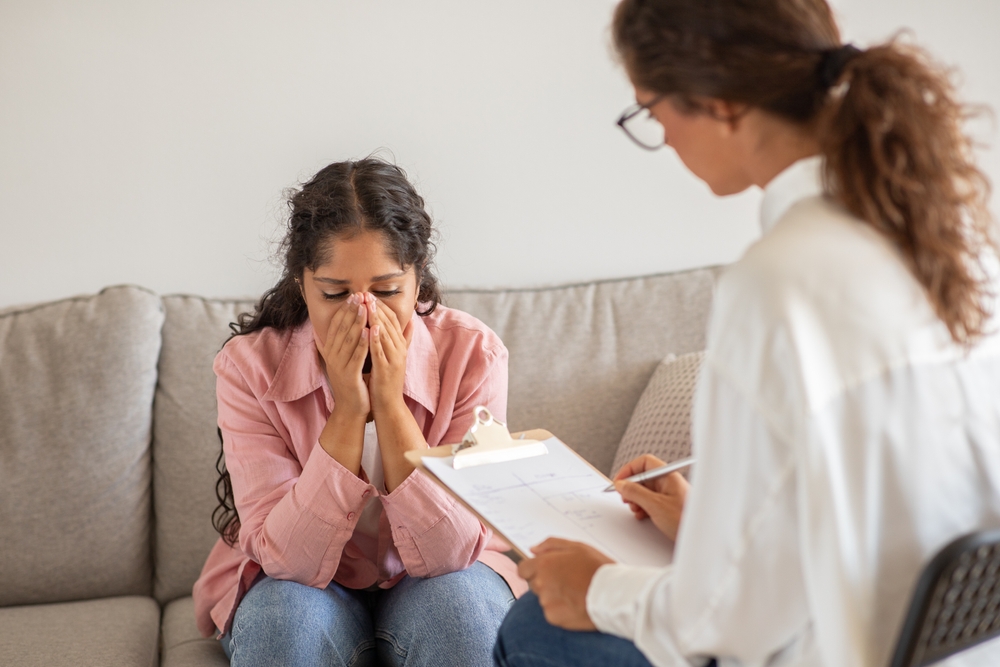Last Updated:
July 30th, 2025
Emergency Rehab Options | How Do They Work?
Drug and alcohol addiction can spiral dangerously fast. One moment, things may seem under control, but a sudden overdose, mental health crisis or dangerous withdrawal episode can create an emergency situation. These are the moments where hesitation can cost lives, and while seeking immediate medical help is the first priority, what follows is just as important. Emergency rehab provides urgent addiction treatment options, offering same-day admission and 24/7 support. If you or someone you love needs help now, seeking it right away can be a genuine lifesaver.

What is emergency rehab?
Emergency rehab programmes are a specialised form of addiction treatment designed for people who need help immediately. Unlike standard rehab services, which can involve long waiting lists or scheduled admissions, emergency rehab responds to crisis situations where waiting simply isn’t safe. It offers rapid access to medical support, detox and therapeutic care, often with same-day or next-day admission.
Emergency rehab is usually for people facing acute danger, such as from a drug or alcohol overdose, severe withdrawal symptoms or a mental health crisis tied to substance use. It may also be necessary if someone has relapsed after a period of sobriety and is unable to stabilise on their own. In some cases, people also enter emergency rehab after hospital admission or a family intervention when the situation has become too serious to ignore.
Emergency rehab creates a secure environment where you can be medically monitored, emotionally supported and guided toward recovery before things get worse. Whether it’s your physical health, mental wellbeing or immediate safety that’s at risk, urgent addiction treatment will help protect you and start the healing process without delay.
Struggling with an addiction? If you are ready to seek help, reach out to us today, and a member of our compassionate team will help you find the best option for starting your recovery journey.
When should you seek emergency rehab?
Many people delay seeking help for addiction because they’re not sure when things are “bad enough.” This can be very dangerous because the line between concern and crisis can be frighteningly thin. Here are some of the signs that your situation may call for urgent admission to a rehab centre:
How to access emergency rehab for addiction
Accessing emergency rehab for addiction can be overwhelming, especially in a moment of crisis, but the first and most important step is to reach out for help right away. If you’re in immediate physical or mental danger, seek emergency medical attention first. Hospital A&E departments can stabilise you and, in some cases, may be able to refer you directly to an addiction treatment facility. However, NHS emergency rehab options are extremely limited and may involve waiting lists, even in urgent cases.
Private emergency addiction centres can often admit you the same day, with no GP referral required. You will usually speak to an admissions team or addiction specialist who will ask some quick screening questions about your substance use, physical health and current risk level. From there, fast-track rehab for addiction can be arranged, including emergency detox treatment, transport options and round-the-clock care.
When every second counts, knowing how to access emergency help can save your life or someone else’s, so don’t wait!
The benefits of emergency rehab for addiction recovery
While needing emergency rehab is a serious matter, it can also be the start of something life-changing. Here are some of the most important benefits of emergency rehab:
What does emergency detox treatment involve?
As mentioned above, emergency detox treatment is often the first step when someone reaches a dangerous point in their addiction. If you’ve been using heavily or for a long time, stopping suddenly can cause intense physical and psychological symptoms, some of which can be life-threatening.
For example, if you are detoxing from substances like alcohol, opioids or benzos, there is a risk of seizures, high blood pressure or mental health crises. Emergency detox takes place in a secure medical environment where your withdrawal symptoms are monitored and treated by professionals. Medication may also be prescribed to reduce these risks and make the process more bearable.
This stage is critical because it helps you move out of crisis mode and stabilise, both physically and mentally. Without it, you may be too overwhelmed to face what comes next, but once you’ve had the right medical support, you’ll be in a far stronger position to begin therapy.

How to find emergency rehab centres near me
Time matters when addiction becomes an emergency. Addiction Helper can help you access fast-track rehab for addiction, with urgent detox and treatment options available right now. Contact us today, and we’ll help you find the best treatment and get you back on the right path.
Our compassionate team are ready and available to take your call, and guide you towards lasting the lasting addiction recovery you deserve.

